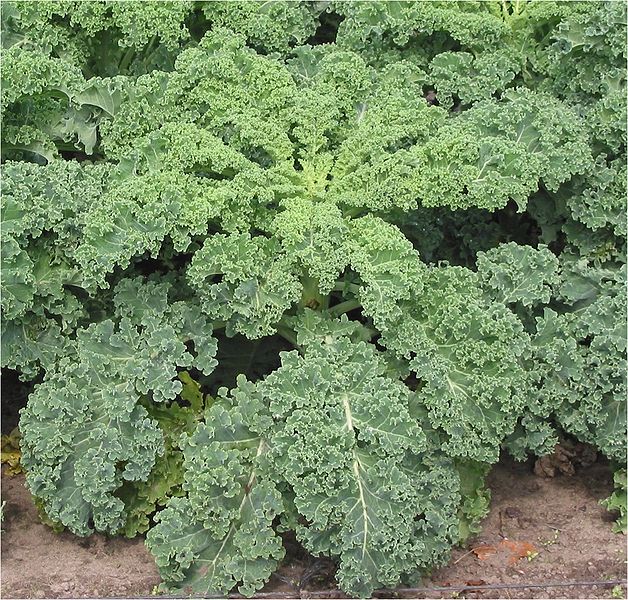Kale
2012

Kale is considered to be the most nutritious of all vegetables.
About – Kale is a leafy green vegetable that belongs to the Brassica family, which also includes cabbage, collards and brussel sprouts. There are several varieties of kale, such as curly kale, ornamental kale, and dinosaur kale, all of which differ in taste, texture, and appearance. Curly kale has a fibrous stalk, ruffled leaves usually deep green in color and has a pungent and slightly bitter flavor. Dinosaur kale is also known as Lacinato kale. It features dark blue-green leaves that have an embossed texture. It has a slightly sweeter and more delicate taste than curly kale. Kale is easy to grow and can grow in colder temperatures where a light frost will produce especially sweet kale leaves.
Nutrition – Kale is rich in beta carotene, B complex vitamins, vitamins C, E and is exceptionally high in vitamin K, a nutrient that helps to regulate our body’s inflammatory process. Kale is an excellent source of manganese, copper, calcium, potassium, iron, magnesium and phosphorous and it has gained recent widespread attention due to their health-promoting, sulfur-containing phytonutrients. Kale has an unusual concentration of two types of antioxidants, namely, carotenoids and flavonoids. Of the carotenoids, lutein and beta-carotene are its primary antioxidants and kale has at least 45 different recently discovered flavonoids, including kaempferol and quercetin. Many of the flavonoids in kale are also now known to function not only as antioxidants, but also as anti-inflammatory compounds. Kale is a top food source for at least four glucosinolates, which once digested can be converted by the body into cancer preventive compounds. Kale has a high level of dietary fiber that binds together with the bile acids in our intestine in such a way that they simply stay inside the intestine and pass out of our body in a bowel movement, rather than getting absorbed along with the fat they have emulsified. When this happens, our liver needs to replace the lost bile acids by drawing upon our existing supply of cholesterol, and therefore kale helps to lower our cholesterol levels.






